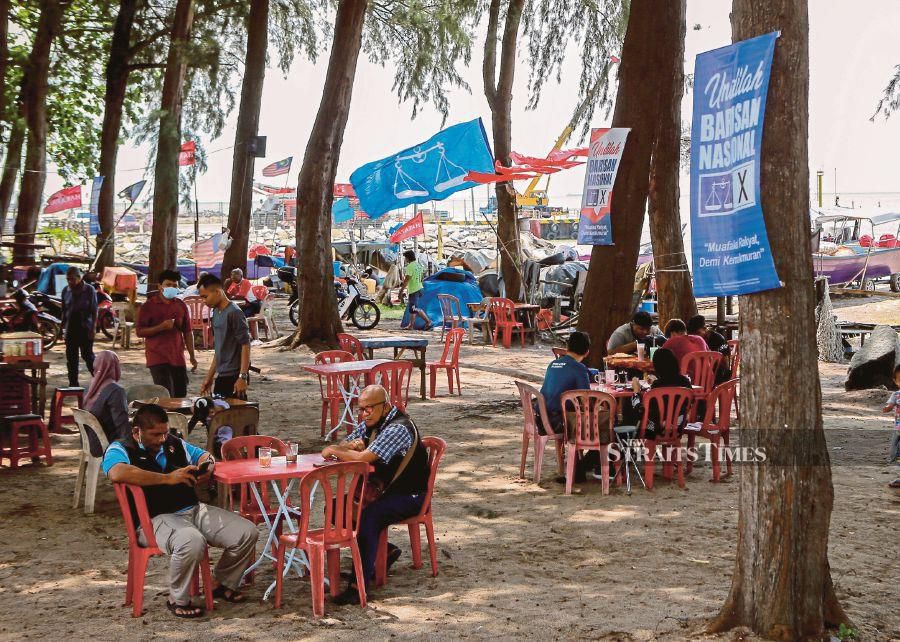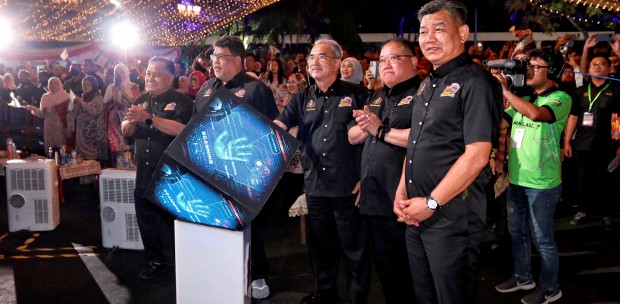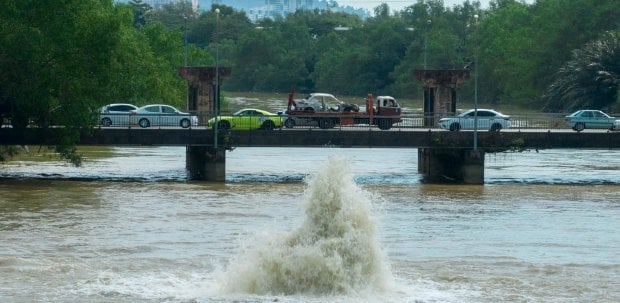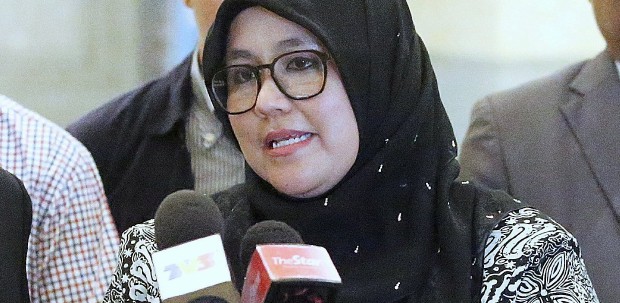MELAKA: As Barisan Nasional leaders celebrate their landslide victory in the 15th Melaka state election on Saturday, rivals are scratching their heads over what they had initially thought was close to impossible.
Some argued that they did not expect BN to win two-thirds of the 28 seats, following early talk that the coalition might at best win with a razor-thin margin.
Experts say BN had played the long game by reducing people's confidence in federal governments led by Pakatan Harapan and Perikatan Nasional.
Some implied that the close winning margins in some seats, such as Tanjung Bidara and Pengkalan Batu, highlighted the importance of a huge voter turnout, which saw only 326,068 out of 476,037 voters statewide casting their ballots.
The Election Commission's prediction of a 70 per cent turnout fell short when only 65.85 per cent voted, a stark difference with the 14th General Election (GE14) when 84.52 per cent of people voted.
BN component party MCA, which some predicted would be decimated again, surprised many when it won two seats: Machap Jaya and Kelebang.
Even MIC made a comeback of sorts by wresting Gadek from DAP, which it had lost by 307 votes to PH's DAP in GE14.
Analyst Associate Professor Dr Awang Azman Awang Pawi said BN had won chiefly the votes of its traditional voters who were not taken in by the negative narratives against the coalition, as well as the greater number of voters who would vote other than BN.
"Their win is basically influenced by Umno's push for populist policies, such as the extension of the moratorium and food baskets, despite this receiving a backlash from its own ranks.
"Moreover, the party has the financial resources, mechanism and machinery, as it was the ruling party. These are all the advantages it enjoyed."
An Umno source said the number of its hardcore voters was not matched by PH or PN voters, who had came out in force in GE14.
The source said to describe the results as a vote-swing was inaccurate, due to the low voter turnout.
"We were counting on that. But it did not mean that the low voter turnout made things smooth sailing for us.
"In Tanjung Bidara, for example, the difference between Melaka Umno chief Datuk Seri Ab Rauf Yusoh's votes (3,559) and Bersatu's Masjid Tanah MP Datuk Seri Mas Ermieyati Samsudin's (3,195) is only 364. It is a small margin and the constituency will be a hot seat in the next election."
There will be more to dissect about BN's victory, but observers were quick to shine a spotlight on PN's dismal performance, which saw it win only two seats: Bem-ban and Sungai Udang.
Fingers were pointed at PN's strategy of dragging its feet on naming the chief minister candidate, as well as the mindboggling decision of granting Pas eight seats to contest despite the Islamist party's non-existent presence in the state.
While other parties had announced their chief minister candidate at the start of the race as a show of commitment and direction, PN had named Mas Ermieyati only on Thursday in Kuala Lumpur.
"Mas Ermieyati did not have time to promote her candidacy and plans if she became chief minister. She could not showcase her leadership mettle as a potential state leader. She could have won otherwise. The announcement increased her favourable rating among voters, but it was too late."
The rumoured animosity between her and Melaka PN chief Datuk Mohd Rafiq Naizamohideen also fuelled speculation about the late announcement to name the chief minister candidate.
Rafiq, 35, is said to be ambitious and intimidated by Ermieyati's federal stature as an MP and had desired the chief minister's post for himself.
Sources claimed he had attempted to promote himself for the position following Bersatu's silence on the matter.
The leadership's alleged apprehension about his candidacy was then mitigated following suggestions to nominate Mas Ermieyati instead.
She had even received an endorsement from PN secretary-general Datuk Seri Hamzah Zainudin several days ahead of the announcement, in a move considered by many as a done deal.
Meanwhile, PH's defeat saw all 11 PKR candidates lose, while DAP retained four seats and Amanah, one.
Sources said the party had suffered a setback from the get-go when it accepted former Umno leaders Datuk Seri Idris Haron and Datuk Nor Azman Hassan into its fold. This was an unpopular move, which was even rejected by DAP.
A party leader said the decision had led to distrust among voters and loose cooperation with the election machinery in Asahan and Pantai Kundor, which were contested by Idris and Nor Azman, respectively. Both lost their seats.
"Accepting frogs is a bad move, especially when you are dependent on outside voters to win. This deterred our supporters from returning home, as they did not want to waste time casting their ballots for turncoats.
"By accepting them, PH found it difficult to use its anti-frog narrative and was seen as being hypocritical.
"BN used this to discredit PH, which resulted in a few DAP candidates losing their deposits and PKR's decimation."






